|
Web
and Book design, Copyright, Kellscraft Studio 1999-2008 (Return to Web Text-ures) |  (HOME) |
| OLD PLAN OF FORT WESTERN VACATIONING IN
MAINE
IF one has only two weeks to rest, how shall he use that time? If one's physical condition is good, he could best see the state as follows: Coming to the state by water, to Portland, he should give a day to the islands of the bay, and another day to an excursion to York, returning by the same route. A third day could be well spent by taking one of the routes to Fryeburg and returning by another which would bring him to Naples through Bridgton. A day may be spent by visiting Poland by still another route. One may then go on to Brunswick and Augusta and spend the night at Belgrade. The next day he may run to Rangeley Lakes and remain over night. Returning by another route we pass through Stratton to Kingfield and so to North Anson, Madison and Skowhegan and thence to Greenville on Moosehead Lake. Remaining there for the night or going on to Kineo we may, the next day, by the way of Guilford, Medford and Mattawamkeag go to Millinocket. From that point a day or two may be put in at the camps by the lakes at Mt. Katahdin. Returning to Millinocket or Mattawamkeag we may give two, or three or four days to a journey, through the length of Aroostook County to Fort Kent and return. By a choice of various routes one goes from Mattawamkeag by Springfield and Topsfield to Princeton, where a day may be given to Grand and Long lakes. Thence to Calais and Eastport, and Machias. If one has a day to spare a northward tour into the lake region where we swing back from Meddybemps to Machias again, will be found attractive. We go then to Ellsworth and Mt. Desert giving perhaps two days. From this point to Bangor by way of Castine and Bucksport. A journey from Bangor down the east bank of the river through Belfast to Camden brings us to an important stopping place. We may have a day or two or more here. Then a day at Damariscotta and Wiscasset and Bath and thence to Portland. FORT WESTERN, AUGUSTA The only
necessary
variation of this route if one comes in by motor, is that he would
approach the
state from Portsmouth and have a day along the beautiful coast towns on
the way
to Portland. It would not be
at
all wise to attempt to cover the region we have outlined, in one week.
Three
weeks or more would enable the tourist to learn more comfortably the
pleasures
of Maine. A notable addition would be the canoe trip down the Allagash,
from
the northern end of Moosehead Lake to Fort Kent. If only one
week is
available the traveler will do much better not to go north of Belgrade
and
Bangor. For a long rest, at points of importance, with every provision for good living, one may suggest York, Portland, Poland, Rangeley, Belgrade, Augusta, Greenville, Kineo, in the western part of the state. In the eastern portion, Rockland, Camden, Bangor, Castine, Mt. Desert, and various camps north of Bangor. we attempt no guide book and make no apology for omitting many delightful and important points because it is given to but few to see everything. There are at least fifty comfortable lake resorts which we have not mentioned and as many more village resorts. 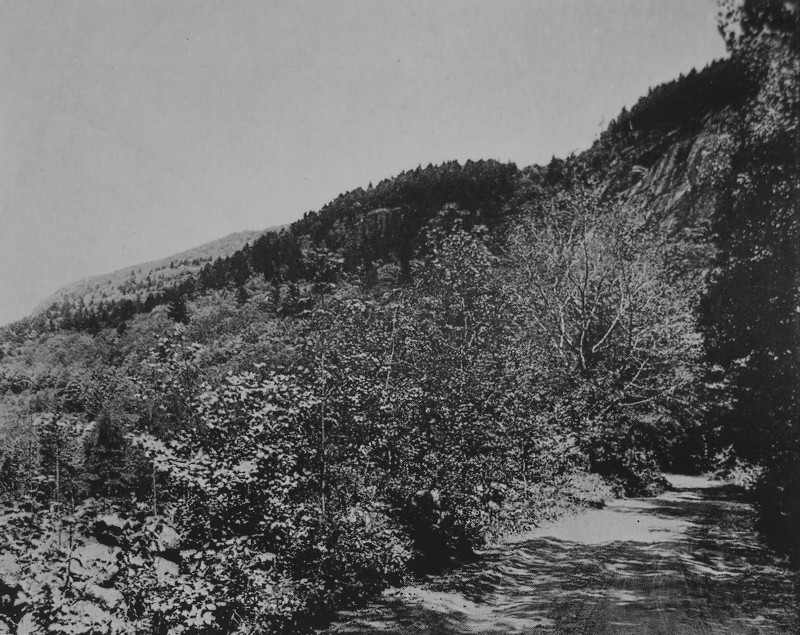 UNDER MEGUNTICOOK - CAMDEN 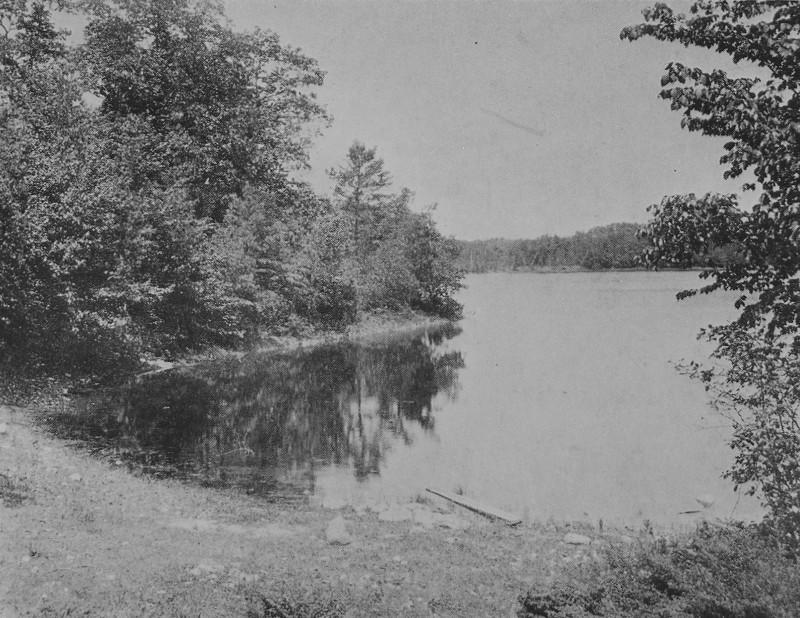 THE LIP OF THE BOWL - FALMOUTH 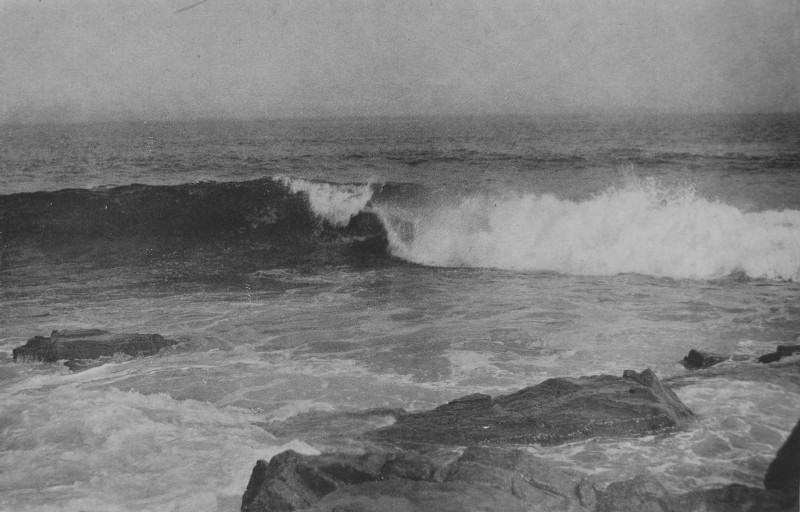 FROM OCEAN DRIVE - BAR HARBOR 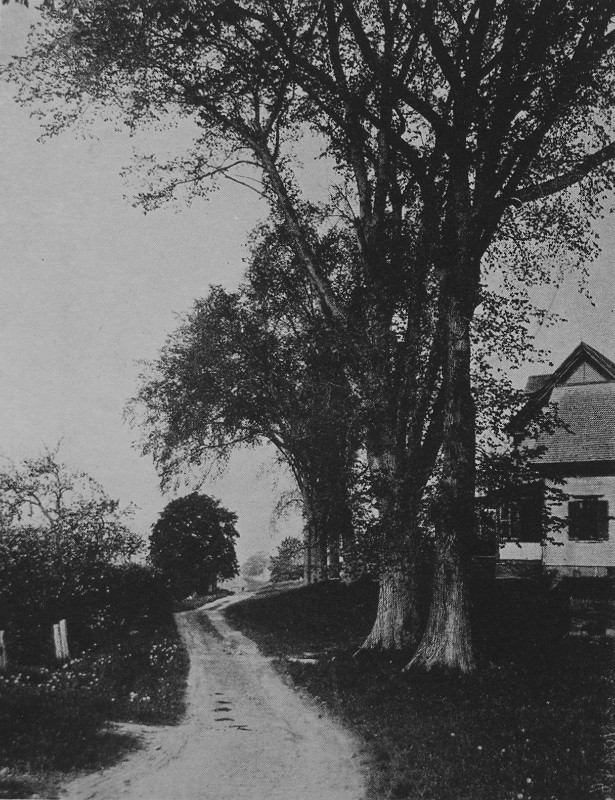 SKIRTING THE ELM ROW - NORTH EDGECOMB 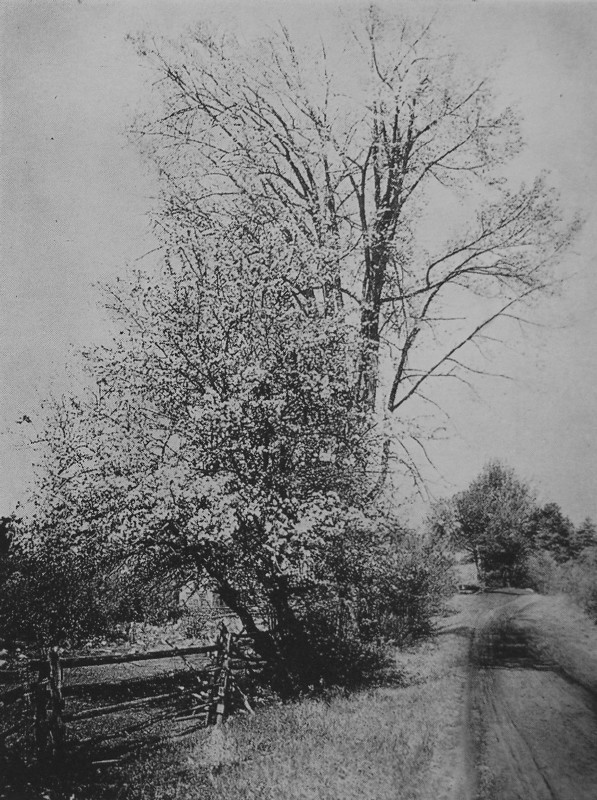 MAY BY THE WAYSIDE - NEAR POLAND 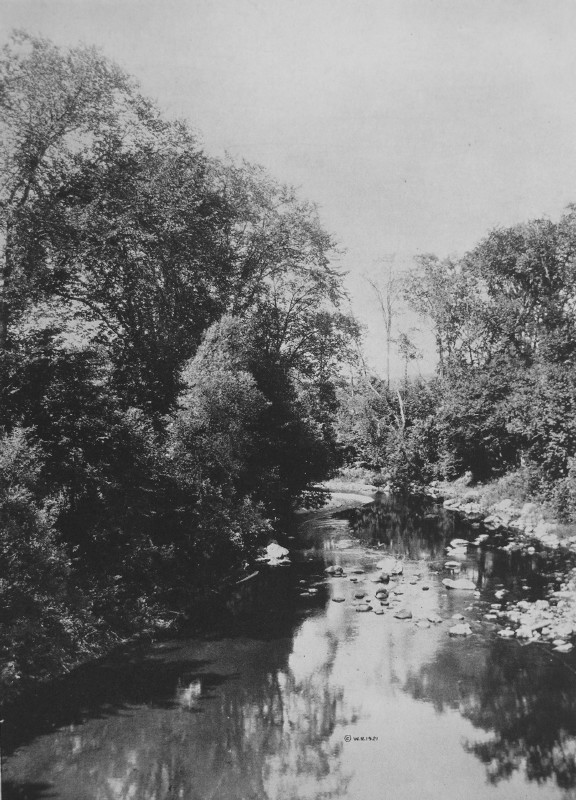 THE HEART OF MAINE - BETHEL 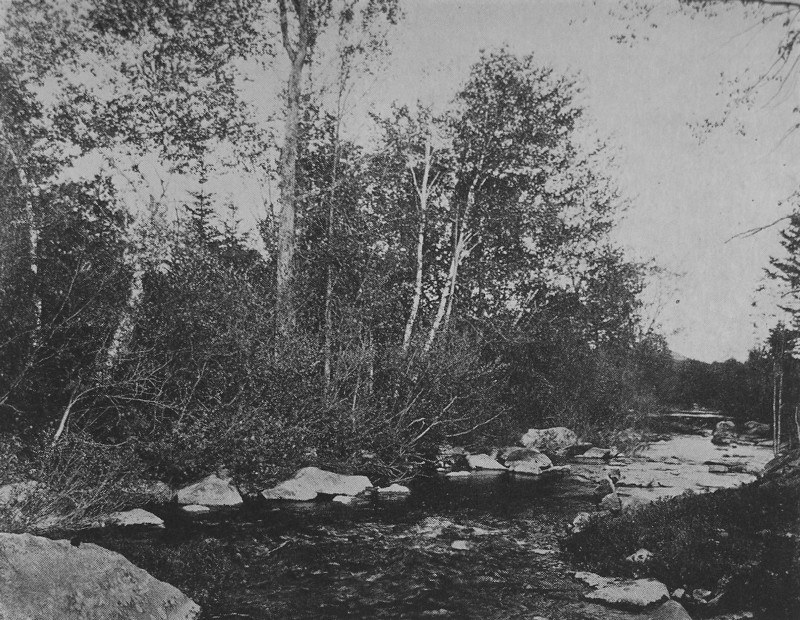 DUCK TRAP BROOK 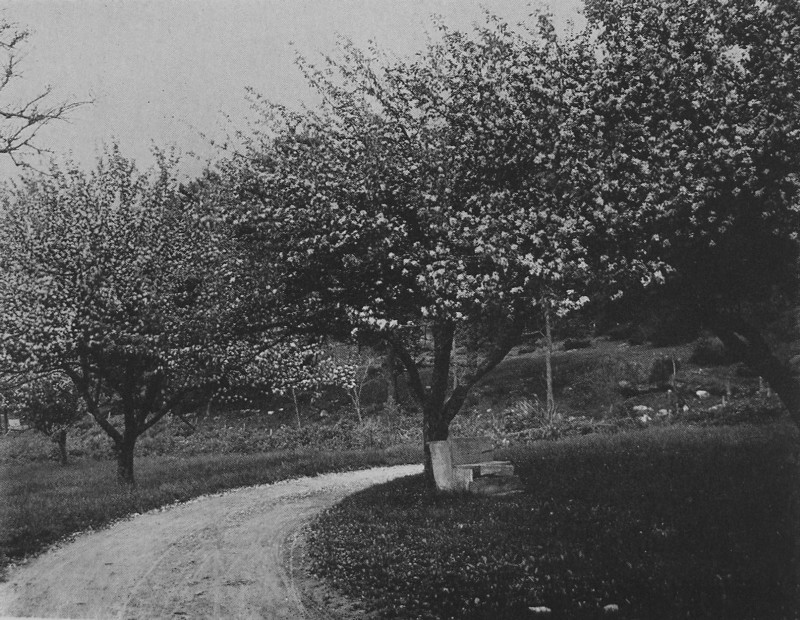 FROM THE FARMER'S DOOR - DRESDEN  A MAINE PLOUGHING - BERWICK  MAINE SURF 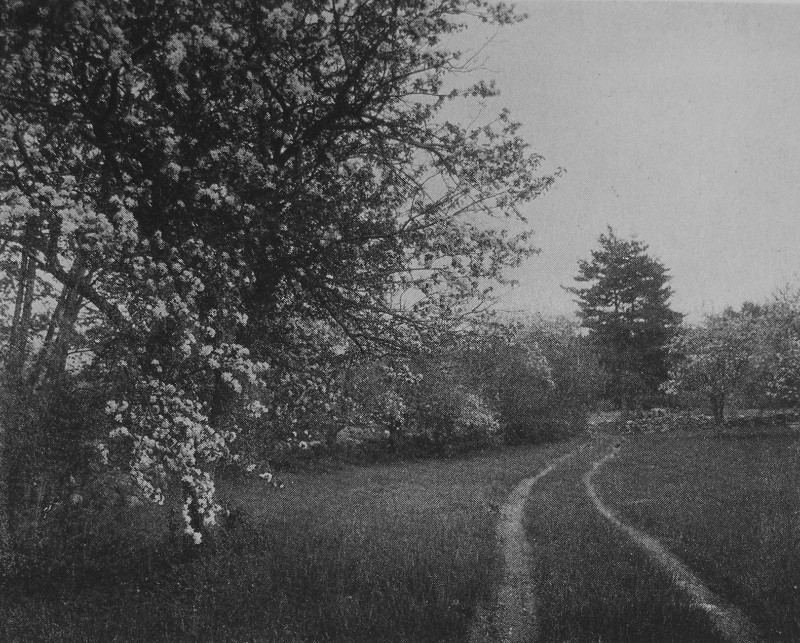 THROUGH THE FIELDS - FRYEBURG 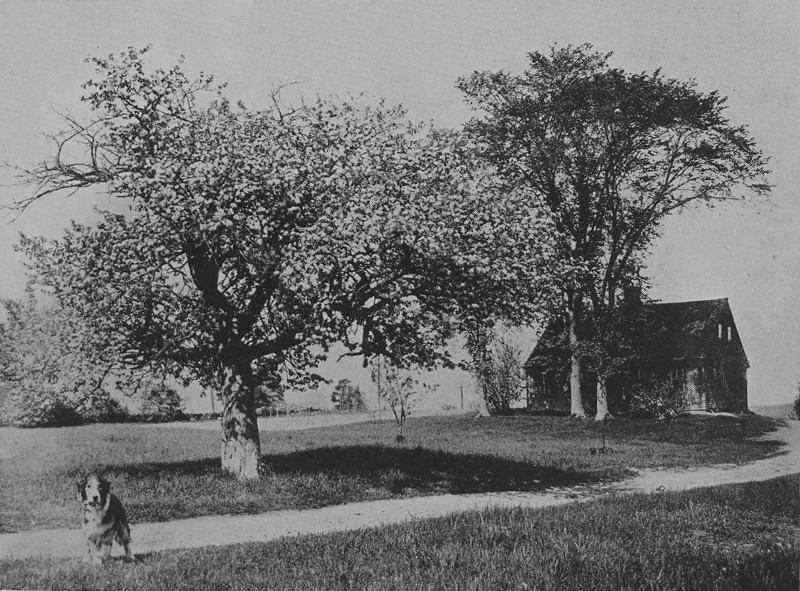 WELCOME HOME! - WASHINGTON 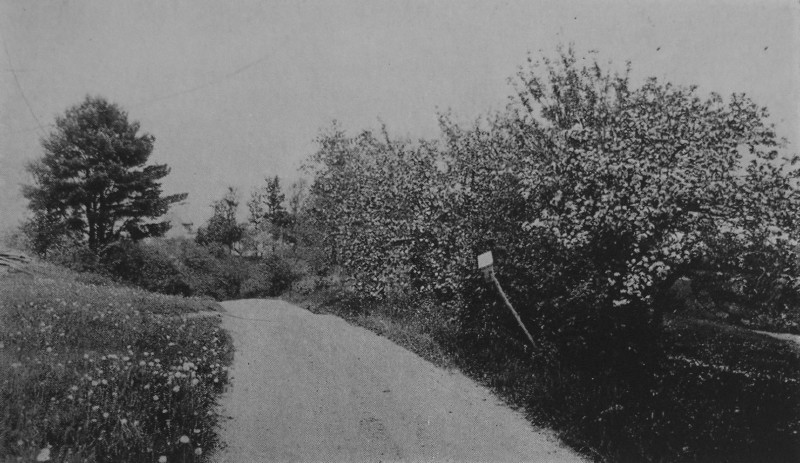 THE RURAL MAILBOX 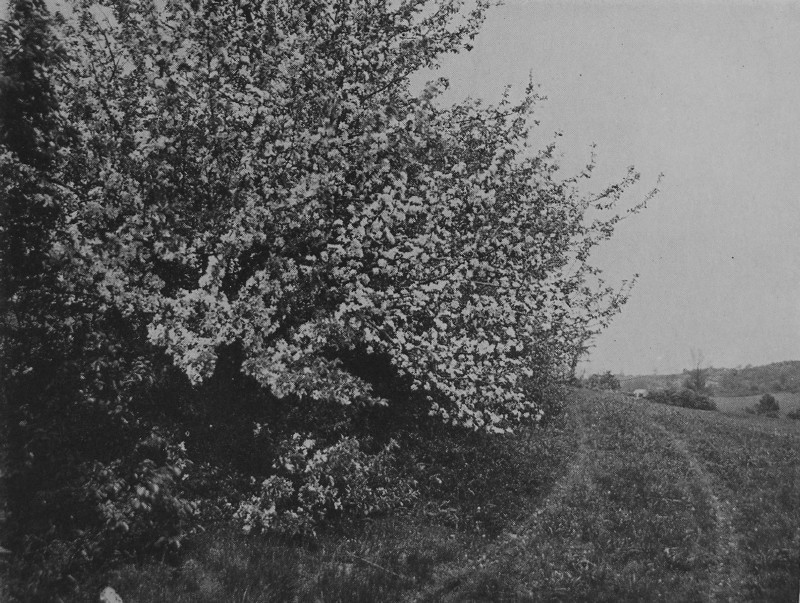 COUNTRY DELIGHTS - DRESDEN While there is
not
so much canoeing following the principal rivers we think that mode of
recreation would prove very attractive, especially as it would bring
one to
many important spots of human interest. The writer is
very
fond of small village hotels and they are fairly good. The flavor of
the
region is in such places more fully tasted. We have already outlined
little
journeys from Fryeburg. Similarly from Newport one could take a day for
Moosehead Lake, another for Augusta and Belgrade. A third for Bar
Harbor, a
fourth for Castine, and a fifth for Millinocket. His stay could be
extended by
visits to Oldtown, to the north Kennebec, and to various local lakes. Eastport should
be
kept for a good half dozen boat journeys, including Grand Manan, St.
Andrews
and the bay to the east of the city. Some such excursion from Calais or
Princeton
would provide an agreeable week or summer. Kingfield is a center for
Rangeley,
for Jackman, for Belgrade, and the upper Kennebec. There are of
course
those, in great numbers, who dwell, the summer long at Poland, Bridgton
or
Naples, and others who enjoy an entire season at Boothbay or Rockland.
Boothbay
especially for water lovers is a very notable center. There are not a
few
persons, who, weary, of the world's work, remain close to Camden,
Castine, or
Bluehill the season through. Of course it is well known that dwellers
on Bar
Harbor never require to leave the island. Every one has
his
preferences. The upper and wilder country has a very strong appeal, and
there
are multitudes of Maine visitors who lose themselves in the deep woods
and
never ending series of lakes in the northern half of the state, making
their
own camps and living quietly. It is feasible to occupy some months in
canoeing
only and never crossing the original track. One may go down the
Allagash or the
St. John returning by the other route. A summer is not too long for the
circle
of the lakes at the extreme north of the state. When ladies are
of
the party and there is reason for limiting expense, with a family of
children,
the thing to do is to seek out some of the good boarding houses. The
traditions
of Maine people are in favor of good food in plenty. The writer has
boarded in
many places in Maine with a wide range of charges, but has never yet
failed at
finding a fairly satisfactory meal awaiting him. Perhaps not as much
could always
be said for the beds, but brief investigation may satisfy one as to
that
important matter. We recognize
that
not every one tours by the roads. We question in fact whether those who
do so
derive as much pleasure as is possible by a summer stay in one place.
It has
appealed to many to have summer homes in Maine. They may there satisfy
their
craving for the picturesque and they may also enjoy the pure air of the
state
where malaria never appears. Who would not enjoy getting his mail at
Wytopitlock, or who would not rejoice in owning Polywog Pond? The Maine
residents are glad to see us all. Partly they enjoy sharpening their
wits upon
us. The social life of the people of Maine, primarily in the smaller
neighborhoods, receives an agreeable fillip from the visit of guests
from afar.
We find that, about some things, they are so much better informed than
we are,
the exchange of conversation is profitable. It has been alleged that
self
conceit is the principal barrier to learning, if we except indolence.
There are
a large number of Maine people and the people who visit Maine, who are
still
gifted by that delightful possession, curiosity. Gossip has been very
much
maligned. Certainly it is one of the most agreeable features of life!
If we are
neither bitter nor hard, what more delightful occupation is there than
to talk
about our neighbors? The Maine farmer can tell you just why his
neighbor does
or does not thrive on the farm. There is a certain terrible justice in
the
estimate of his neighbors by a frank man. But if there
are
those with an unreasoning objection to gossip, though in practice we
have never
met them, the parties to a conversation may always talk about
themselves. STANDISH DWELLINGS The man who cannot learn something from a Maine farmer or a Maine farmer's wife must indeed be very dull. Our final suggestion is therefore that the reader journey through Maine for a month or two, seeing leisurely its more important features and then that he settle down on a Maine farm. The chickens that run about are a visible evidence that plenty will appear on the table. A thrifty garden may induce a late stay until the green corn is in its prime. It is a well recognized fact that no nectar of Olympus, no viand lauded by poets, no notable dish prepared by the wiliest chef, is for one moment comparable with an ear of Maine sweet corn. One should shut his eyes and use both hands for this supreme feast. A little butter is all the lubrication needed. The reader is hereby warned however that more than three ears at a single meal are likely to be dangerous especially after the corn is well filled out. We know because we once made a complete meal of this delicacy. The older we
grow
the hungrier we get for the diet of our boyhood. What tomatoes grew
then, rich,
red and juicy, what peas, what delectable wax beans! Is there anything
better
than a new potato dressed with a touch of milk and salt? But we
refrain, for we
must immediately go to dinner! Days in memory
that
help to make a past sharper with warm lights: A long day sitting on the
rocks
of Cape Elizabeth while the tide went and came again. Of course we had
a book
and a friend. This is always safe. The conversation of angels sometimes
ceases.
Sometimes also we weary even of the wisdom of books. Then there is the
language
of the sea as a constant resource. The language is not the less
delightful,
though we understand it only in part. A day of
raspberry
picking on Allen's hill. We passed from clump to clump of the well
reddened
bushes, on the soft turf kept at an agreeable length by the sheep that
feed
about us. We talked in child fashion of great things, and we ate our
lunch
beneath a lone elm by a ledge. The white argosies of the sky sailed on
through
their calm sea. The summer airs caressed us. It was a great day. A winter day
from
Farmington to Augusta in the sleigh. The sun shone. There was no wind.
A soft
snow had touched the fences and the roofs. The evergreens stood out
above the
glinting surfaces. The tang of the winter air set red blood tingling.
The good
horse Jane tossed her head and sped on at a steady gait over hill and
hollow.
Then the joy of arrival. How the jolly eyes of our uncle twinkled, and
what a
thorough business he made of "filling us up" at the supper table! Then there was
a
day among the islands of Casco Bay. There was a day of skirting the
entire
coast of Maine. There was a day of fishing on China pond. Best of all
there was
a day of tramping and canoeing to reach the spot where Katahdin is most
beautiful. Among all these days it impresses us that none of them
included a very
long journey. When too much passes before our eyes in a few hours we
become
like the man who saw the several miles of galleries in the Louvre in an
hour
and a half. One may say,
these
things do not interest me. One who makes such a remark indicates that
he is
either supremely wise, supremely ignorant, or desperately wicked. While
we live
let us enjoy learning why, how, and where, concerning everything in the
natural
world. We cannot learn much now about heaven. True there are those who
would
try to tell us of it. There is only One who has been interesting on
this
subject, and His remarks were brief. Shall we not perhaps best indicate
our
reverence and appreciation by looking more carefully at the world we
have? To our thought
the
man who, in Maine, dreams of heaven but does not see it has an
imagination
which far outruns his vision. Has any body half understood the things
that lie
all about him? It is a grave question whether people who show a
contempt for
creation or even a carelessness for it are really good people however
much they
may pray. It was Tennyson's thought that God reveals himself in many
ways. Have
we very fully and carefully looked for these revelations in Maine?
Somebody has
photographed the village store and on a postal card has sent its
wretched front
abroad. As Collier says of these meaningless pictures of meaningless
edifices,
what of it? How many good pictures can you find of a district ten miles
across
centering at a Maine village? To supply this
very
lack of worth-while pictures we have examined thousands of view-points.
Is not
our country worth giving our careful attention? The artist in Holland
did not
have remarkable themes to paint. There is a deal written about the
Dutch
atmosphere. A similar atmosphere is often found anywhere east of the
Missouri
River. We have wonderful compositions from the hands of Holland artists
because
they did their best with the material before them. Similarly, could we
have a
Corot in Maine he would do much more with its fine trees and hills as
backgrounds
than he could do with the everlasting sameness of French poplars. A
good many
apparently valid reasons can be named to explain the production of
beautiful
art work, and a good many more can be named to prove that such works
must be
limited in their scope. The plain fact is that the artist will produce
results
according to his genius and effort, wherever he may be. Another plain
fact
is that America is for the most part a virgin field. You many wander in
vain in
all our art galleries to find a single example of any one of thousands
of
exquisite American landscapes that are to be seen as one travels. The
artist
who should have been painting them was in Paris or Rome or in some
foreign
watering place. He went abroad to study and remained abroad. The same in
great
measure may be said of artists here in America. It remains for an
American
Maecenas to provide typical paintings of the beauty of all our American
counties where the material may be found for worthy compositions. In
the
national capitol we have a few notable western subjects. In some of our
other
capitols we have other themes representing the development of the
states
concerned. But where has any state or local art gallery or private
individual
ever attempted to gather representative scenes of a state's beauties?
The
omission is a capital error, which may yet be corrected. The pictorial
history of our states has thus far been carried on by the postal-card
artist.
He has recorded the triple line of poles in the village street, ending
his
vista with Silas. barn. Within a half mile there was a lovely stream, a
nestling cottage, a bank of ferns or daisies. There was "the orchard,
the
meadow, the deep-tangled wild wood." Did the photographer record these
things? Did he try to find them? The owner of the barn would enrich the
artist
by the purchase of two post-cards, and both parties to the transaction
would be
highly elated. Yet if this same farmer, so frequently stolid, had been
shown a
composition which recorded the beauties of his back fields, and had
been told
that they were better than Holland, and particularly better than New
York, he
would have believed it. If now we could
inspire a thousand young men of artistic instincts to record the
beauties of
America there would be a reaction worth while, in the way of sustaining
the
self-respect of our citizens. Our art schools are doing nothing for us
in this
respect, or so little that their efforts are not appreciable. They are
teaching
the pupils to paint some baneful French interior, the abode of luxury
and vice.
They are not seeking anything national. They may reply to this
criticism that
art knows no national bounds. Why then do they so persistently scorn
America?
The man who says that one country is as good as another and then avoids
his own
country on principle may be a good artist but he is a poor logician and
a worse
American. If artists wish
to
show us the beauties of the world in architecture their field is
plainly
foreign, because architecture is a matter of the ages. If however an
artist is
an American as the Frenchman is French he will try to do something in
America,
and will discount largely the fine gesture of his foreign teacher who,
never
having seen America, tells him there is nothing in America to paint. Would not the
picture "Looking Seaward" (p. 35) or "Rounding the Cliff"
(p. 11), be worth while for a real artist with a brush? To be sure a
"Maine Ploughing" (p. 186) may be improved on as a theme, but themes
so much worse are common that this might be tried. It would require no
stretch of
imagination to perceive that "Fryeburg Waters" (p. 43) or "Wild
Cherry at Boothbay" (p. 191) are better to paint than a red barn. We therefore
more
and more see the unimproved opportunities in America.
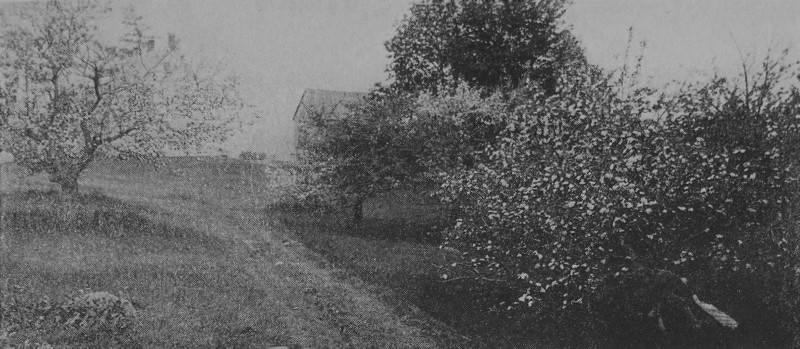 A MAINE SHORE FARM 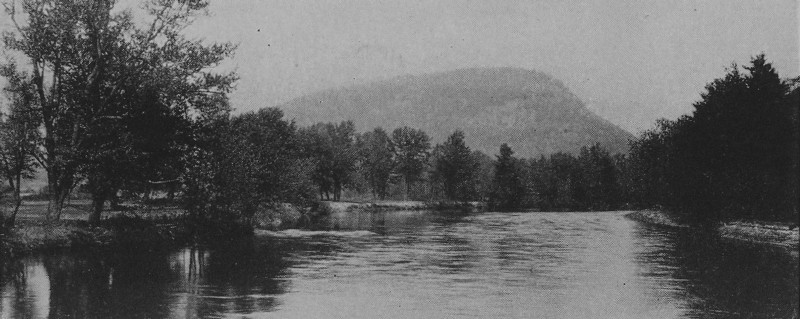 MOUNT TOM - FRYEBURG 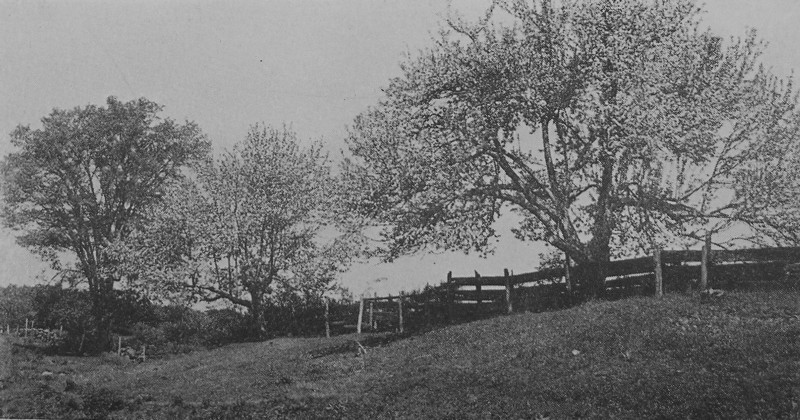 A WINTHROP FENCE ROW 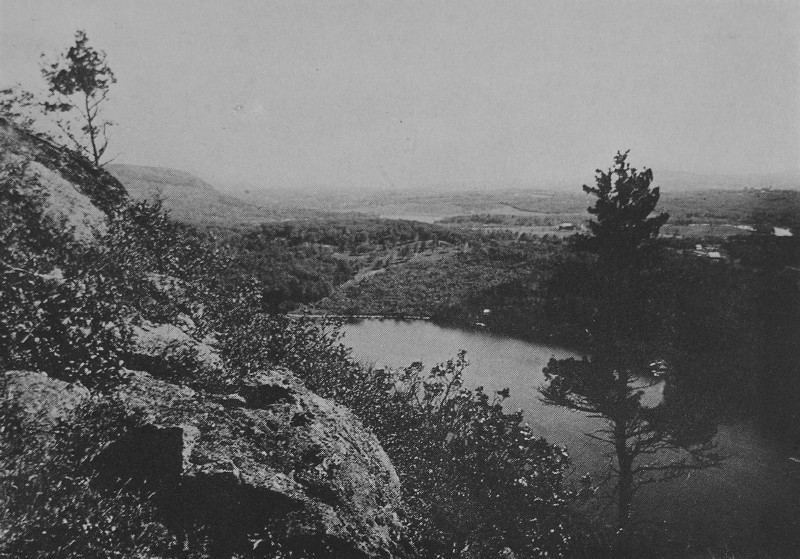 THE LONG LOOK - CAMDEN 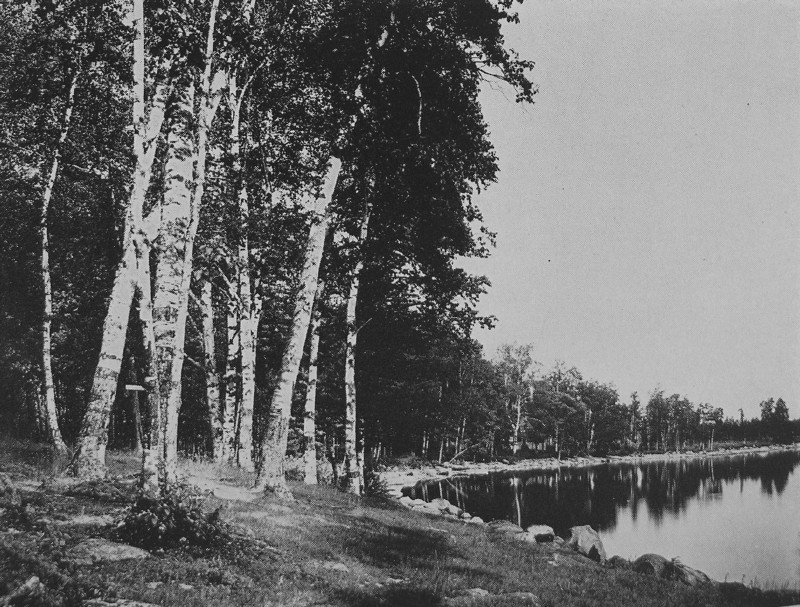 A SEBASTICOOK BAY 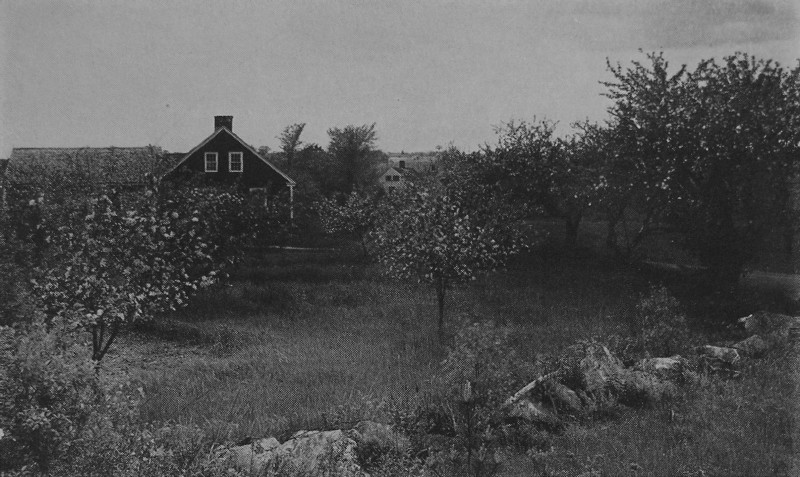 COTTAGE GABLES - MONMOUTH 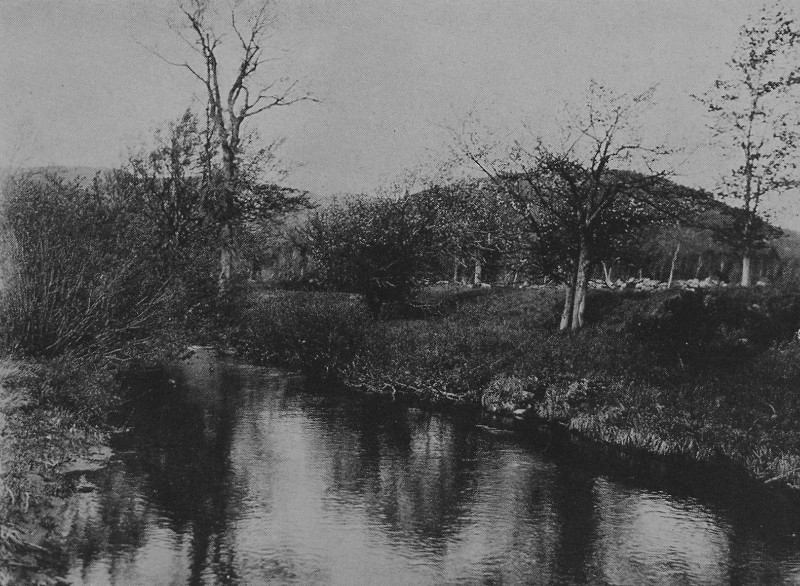 BELOW THE HILLS - STOW 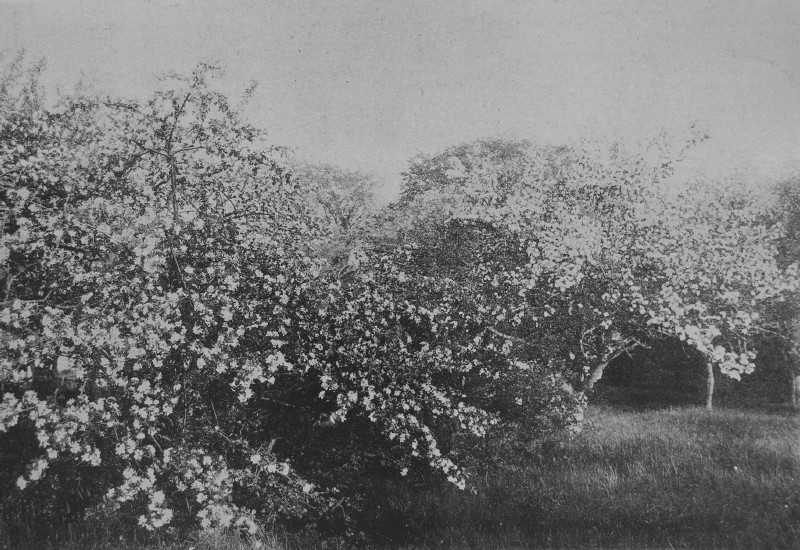 HEAVY WITH BLOSSOMS - MONMOUTH 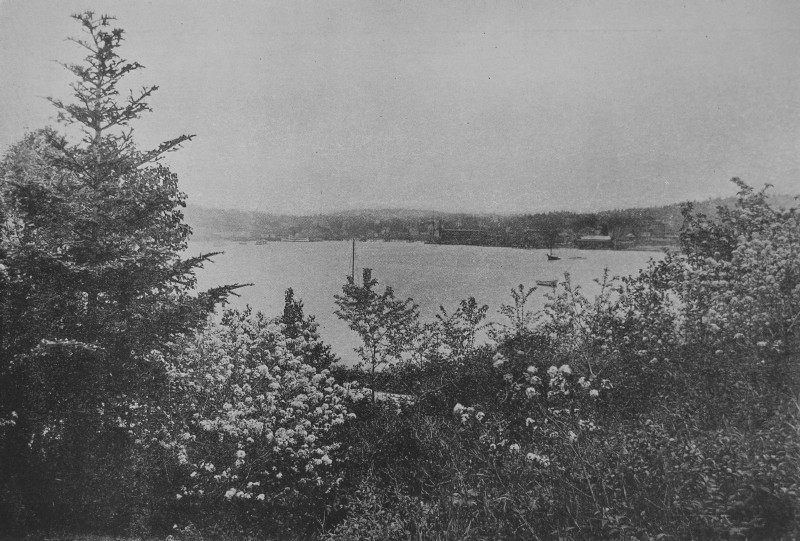 WILD CHERRY AT BOOTHBAY 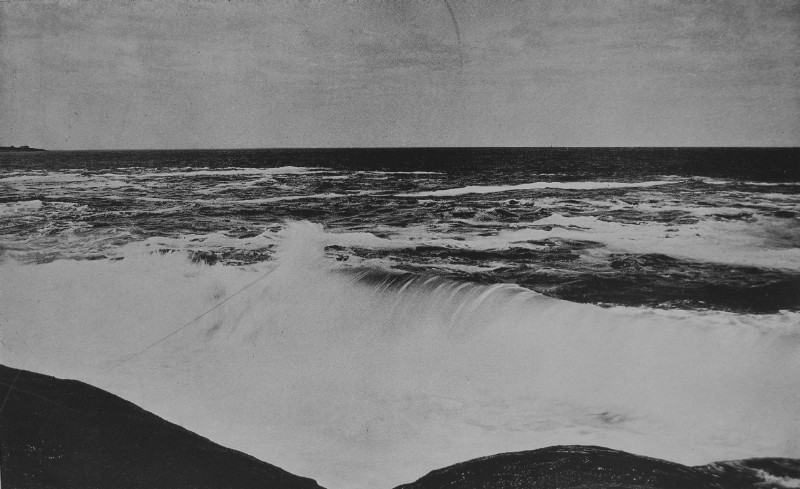 THE CASCO BAY SHORE 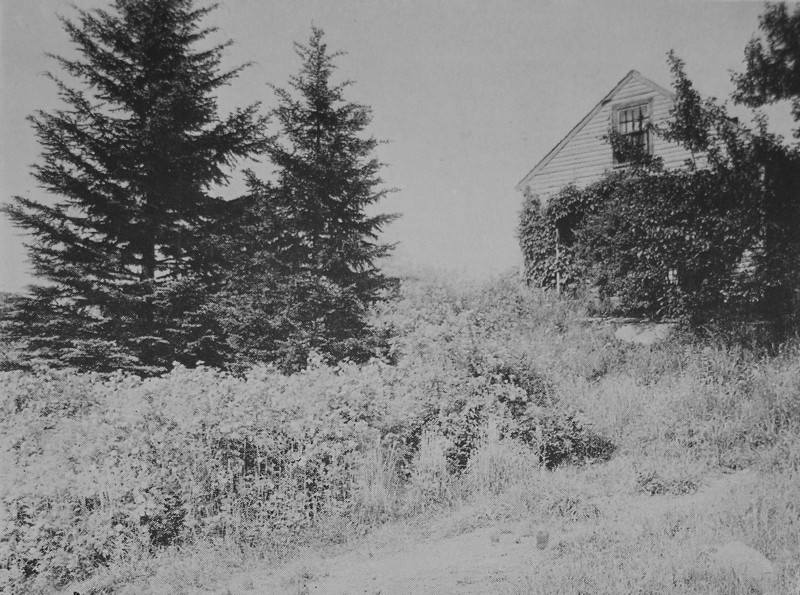 A ROSE GABLE - BELGRADE 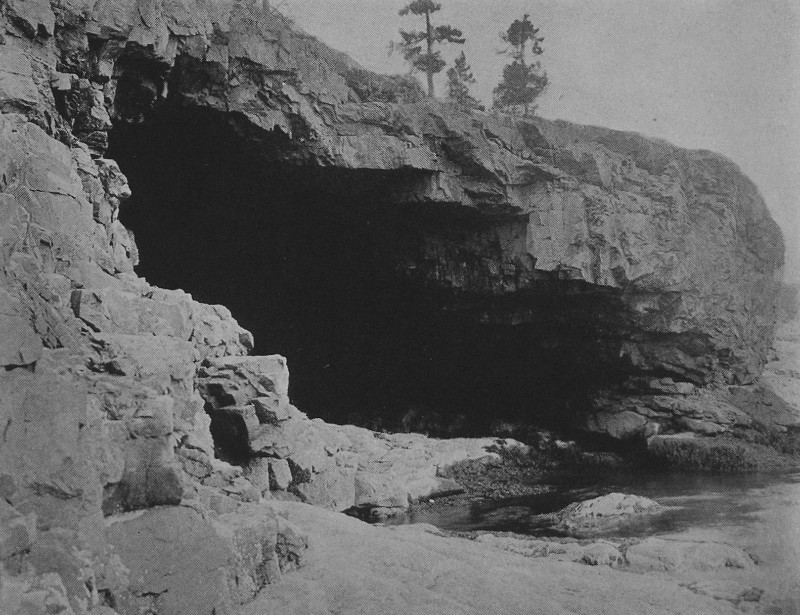 THE OVENS - MT. DESERT 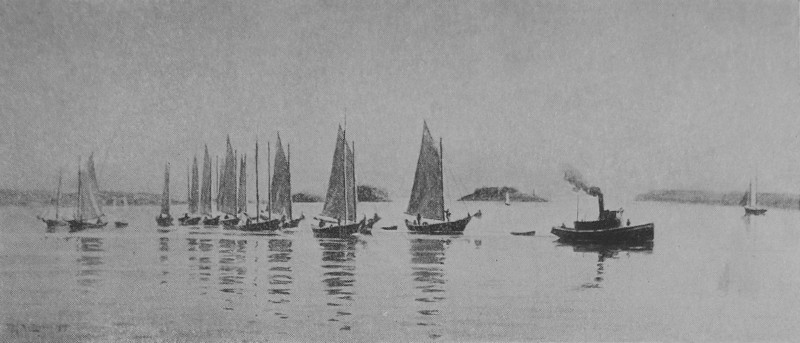 THE TOW 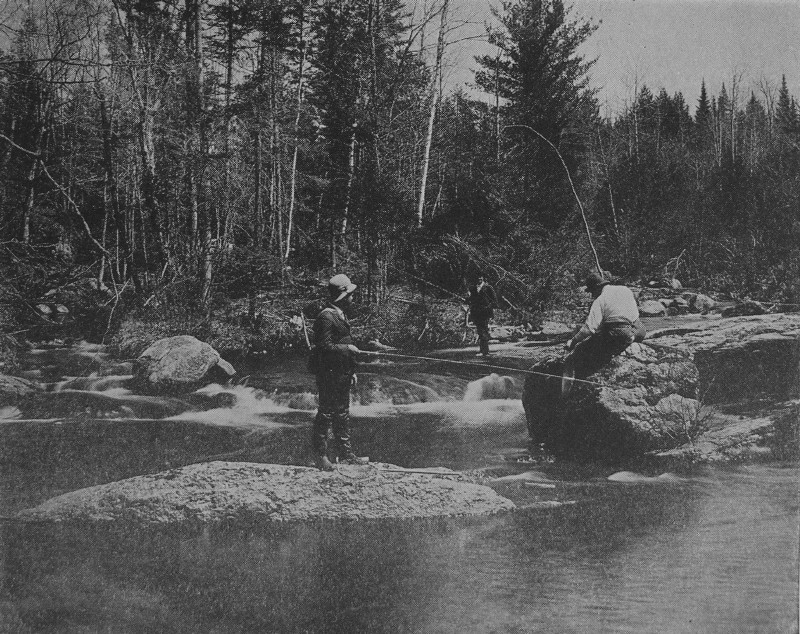 MAINE FISHERMEN |